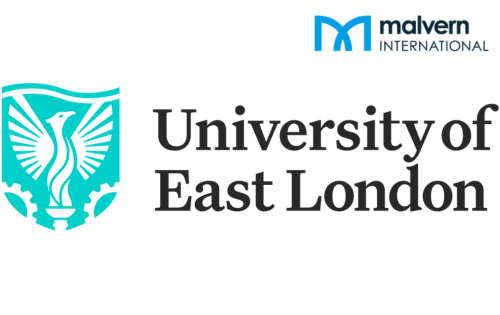Yes, you can study in the UK without taking the IELTS if you apply to specific universities that have different requirements. These requirements could include an undergraduate degree in English, proof of above 60% in English in classes XI and XII, or pre-sessional language courses that are open to international students. Reaching the decision to pursue further education is a big decision, and finding the correct path is essential. International students find the United Kingdom to be an appealing choice due to its diversified culture, world-class universities, and rich history. The prospect of studying in the UK without having to take the IELTS is one notable feature that has drawn interest.
Universities to Study in UK without IELTS
 |
University College Birmingham
Bachelor's Degree - 3.0/B+ in Grade 12 English
Masters Degree - 3.0/B+ in Grade 12 English(5 years of grade 12)
|
 |
University of Wolverhampton
Bachelor's - B, 65% in Grade 12 English
Masters - B or 70% in Grade 12 English
|
 |
University for the Creative Arts
PG: MOI (Only for design related courses)
|
 |
University of East London(Malvern International)
B in Grade 12 English
|
 |
University of South Wales
65%, B+ in Grade 12 English
|
 |
Health Science University
MOI
|
 |
University of Roehampton
Grade B in Grade 12 English
|
 |
York St John University
Bachelors - B+ or 3.2 GPA or 70% only for Year 12 pass out year 2022 and onwards
Masters - Waive UK degree studied in Nepal(2nd class honors) MOI Exemption - TU 60% /Rest Uni: 3.0 GPA
|
 |
University of Worcester
2.8/70%/B in Grade 12 Overall English
|
 |
University of the West of Scotland
Masters - 3.00 CGPA in Bachelors, from TU, PU, KU and PoU. Only 3 years gap accepted for the waiver
|
 |
University of Hertfordshire
70%/GPA 2.8 in Grade 12 English
|
 |
Coventry University
70%/GPA 2.8 in Grade 12 English
|
 |
Cardiff Metropolitan University
Bachelors - B+ in Grade 12 English
|
 |
Ravensbourne University
Bachelors - B in Grade 12 English
Masters - MOI accepted from TU, PU, PoU, KU, FWU, MWU
|
 |
University of Chester
B+/ 3.0 GPA in Grade 12 English
|
 |
Bishop Grosseteste University
Waive UK degree studies in Nepal
|
 |
University of Greenwich International College
Grade B in Grade 12 English
|
 |
Bangor University
70% or Grade B in Grade 12 English
|
Studying in the United Kingdom:
Some of the best universities in the world, offering a broad range of courses across multiple areas, are located in the United Kingdom. Students can immerse themselves in a top-level educational experience anywhere from the vibrant city campuses of London to the ancient halls of Oxford and Cambridge.
Why the United Kingdom?
The United Kingdom offers various opportunities to explore, from prime education to post-work opportunities. Let’s explore the list of benefits of studying in UK:
- Academic Excellence: UK is known for its prime academic programs and modern research. With a rich history of academic excellence and work opportunities, it is home to some of the world's top universities. These universities consistently rank high in global education rankings.
- Global Recognition of Degrees: As you know UK provides high-class education for their students. The degrees earned in the UK are highly respected and recognized worldwide, opening doors to numerous career opportunities and providing a benefit in competitive job markets.
- Quality Education and Short Course Duration: The UK’s education system serves students with an education that sharpens their skills and prepares them for the coming real-world job market. The education system in UK is dedicated to helping students in every aspect, they also have shorter course duration than other nations. This helps students to launch themselves in the market sooner.
- Vibrant Student Life: The UK offers a lively student life with a wide range of activities, and clubs in universities, and societies. Students can explore various parts of UK such as their history, and arts, and also participate in sports and community events.
- Access to Scholarships and Financial Support: UK universities provide various kinds of scholarships, grants, and funding options based on merit and many other aspects to international students, helping to reduce the financial burden of studying abroad.
- Post-Study Work Opportunities: The UK’s Graduate Route visa allows students to stay and work in the country for up to two years after completing their studies. This offers a valuable pathway to gain international work experience and further apply for an Indefinite Leave To Remain (ILR) visa.
A Comprehensive Guide to Study in UK from Nepal
How to Studying in the UK Without IELTS
For international students, the standard approach involves proving English language competency via standardised assessments like IELTS. However, some universities in the United Kingdom have implemented alternate methods for evaluating proficiency in languages. Here are the few alternative for IELTS:
- English Language Waiver: Depending on the applicant's prior academic success or educational experience, multiple universities waive their requirement for English language proficiency. It's possible that graduates of English-medium schools won't need to take the IELTS exam. Remember that in order to meet the requirements of the waiver, each university has its own standards for the English language grades of your high school.
To apply for a waiver, you are required to provide a Medium of instruction (MOI) to the university. MOI is the language in which academic courses and instruction are delivered. For example, if a university's medium of instruction is English, it indicates that all lectures, exams, and coursework are given in English. This is required for the universities that provide a waiver.
- Pre-sessional English classes: To assist students in strengthening their language skills before beginning their academic programmes, many universities offer pre-sessional English classes. If these courses are completed successfully, they can be used as an IELTS substitute.
- Duolingo English Test: The Duolingo English Test is recognised by some universities as a substitute for standard language competency assessments. The reading, writing, speaking, and listening skills are evaluated in this online test.
- Oxford EELT Test: The Oxford English Language Level Test (ELLT) is a test of English proficiency meant to assess your level of English for education or employment. The ELLT is developed and given by Oxford International Digital Institute and is trusted by hundreds of thousands of test takers each year.
- TOEFL: TOEFL is a standardized test meant to measure non-native English speakers' English language skills, particularly those who intend to study or work in English-speaking areas.
Eligibility to Study in the UK Without IELTS from Nepal
Here we have mentioned the eligibility criteria that you need to fulfil to study in UK without IELTS from Nepal:
- Completion of previous education in English-medium institutions with 70% score in English.
- Submission of an English proficiency letter from the institution.
- Meeting alternative English language requirements set by the university.
- Passing a university-conducted online interview or test.
- Providing proof of English proficiency through other standardized tests that you can appear on like TOEFL, PTE, or Duolingo.
- Enrollment in pre-sessional English courses that are offered by the university.
- Possessing qualifications such as A-levels or IB, taught in English as these are equivalent to UK-based certifications.
- Demonstrating strong communication skills in English during the admission process.
- Applying to universities that waive IELTS requirements for eligible candidates.
When can you study in the UK without IELTS?
- If your school's major language of learning was English
In Nepal these days,"English-medium" schools are rather common.
You can demonstrate your English language ability by proving that you attended an English-medium school or university. Based on your performance in English-medium schools, many universities will accept this. You can study in the UK without taking the IELTS by applying to these universities.
- If your university evaluates your language proficiency using your X and XII English marks
Your class XII English subject marks are another factor that many UK universities take into account when considering your language skills. Make sure you receive at least 60% on your English scores on final examinations so that UK universities will consider you for the waiver.
UK Admission Process Without IELTS 2025
These are the procedures that you can follow to get admission in UK without IELTS:
- Research Universities: Identify UK universities that accept applications without IELTS by checking their specific English proficiency requirements.
- Check Alternative English Proficiency Options: Review the university's acceptable alternatives to IELTS. Such as medium-of-instruction certificates of previous degree, TOEFL, PTE, Duolingo, or internal assessments while in some universities students are asked to submit SAT or ACT exams.
- Gather Necessary Documents: Students should start preparing academic transcripts, English language proficiency test scores, a Statement of Purpose (SOP), a valid passport, and Letters of Recommendation (LOR).
- Apply Online: Students can submit their application through the university’s official website or via UCAS (Universities and Colleges Admissions Service) for quick application.
- Attend University Interviews or Tests (if required): Some universities may ask you to participate in any online interviews, English language tests, or assessments conducted by the university.
- Receive Conditional Offer Letter: If the application and interview are successful, the university will issue a conditional offer, outlining the requirements to secure admission in their university.
- Fulfill Conditions and Accept Offer: Students must complete the conditions specified in the offer, such as paying a deposit or submitting additional documents, and formally accept the offer.
- Arrange Finances: After getting an offer and acceptance students must ensure they have sufficient funds for tuition fees and living expenses. Students must start preparing their financial evidence for visa application.
- Apply for CAS (Confirmation of Acceptance for Studies): After meeting all the requirements and criteria of the applied university, the university will issue a CAS. This document is essential while applying for a student visa application for UK.
- Apply for a Student Visa: You can submit your student visa application through the UK Government's visa portal with required documents, including CAS, financial proof, and a valid TB test certificate.
- Enroll Upon Arrival: After landing in UK you can complete your university enrollment process and start your academic journey in the UK.
IELTS vs PTE: Which language is better for UK study?
Can You Get a UK Study Visa without IELTS?
Yes, you can get a UK study visa without IELTS. Many universities in UK accept alternatives like a Medium of Instruction (MOI) certificate of your previous degree, other English tests (TOEFL, PTE, Duolingo), or their own type of internal assessment. After receiving a CAS from the university, you can apply for a visa without IELTS if the institution confirms your English proficiency through these alternatives.
Benefits from Studying Without an IELTS
- Accessibility: The application process without IELTS becomes more inclusive, allowing students who face challenges with standardized testing to apply in universities in UK.
- Flexibility: Students can focus on various other parts that are required during the application. They can focus on strengthening academic achievements and personal statements.
- Cost Savings: Students can save money by not paying for expensive IELTS exams and preparation courses. It gets more efficient as you wont be needed to take any retakes.
- Time Efficiency: Skipping IELTS eliminates the need for scheduling and preparing for the test. Students can focus on gathering other materials that is necessary for the application process, speeding up the application process.
- Reduced Stress: Avoiding standardized tests eases the pressure on students, and they can focus on sharpening their academics, creating a smoother application experience.
International students might have an unforgettable time studying in the UK. More students are now able to think about the UK as a suitable destination for their academic journey, since they have the choice to pursue university without having to take the IELTS exam. The way that the educational landscape is changing is a reflection of how institutions are able to adjust to the demands of an increasing variety and international student body. Therefore, the UK is ready to welcome students from all over the world, offering a doorway to academic achievement and cultural enrichment, whether you're exploring the streets of London or the vibrant city life of Birmingham.
Apply to learn more!



















